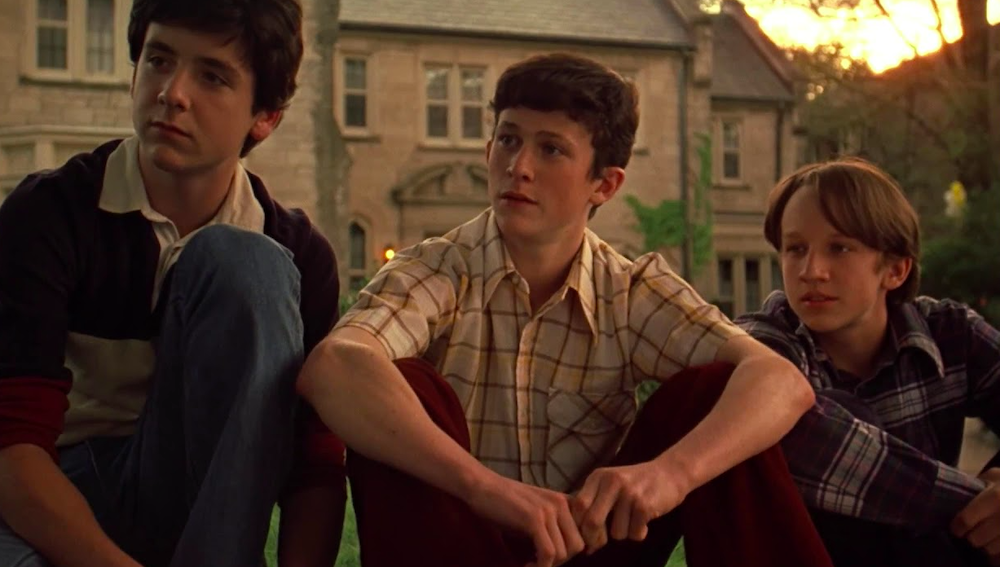Sofia Coppola’s ‘The Virgin Suicides’ presents the audience with the fraught lives of the Lisbon sisters, whose tragic fates become the talk of the town and an obsession for the boys who live across the street from them. The five girls immediately catch the attention of the boys, and their strict parents make the girls all the more removed and, hence, mysterious to the people around them. If that wasn’t enough, the tragedy of the girls makes the boys even more obsessed with trying to figure out what happened to them and how they reached the state where they had to kill themselves. The title gives a lot of insight into this outwardly view of the Lisbon girls. SPOILERS AHEAD
The Title Represents How the Girls are Perceived by the World

At first glance, ‘The Virgin Suicides’ seems like the headline of a news story, like you are about to find out the ins and outs of a true crime story in a suburban setting, and that’s exactly the point of the title. One of the things that the film remains intent on in its approach toward storytelling is the mysterious nature of the girls. We don’t get to know them first-hand. There is no omniscient point of view that takes us into the psyche of the girls. What we see of them is through the lens of the boys from across the street, the boys who take them to the homecoming dance, who try to woo them and find them just as mysterious and enigmatic as the audience.
The presence of the narrators creates a distance between the audience and the Lisbon girls, which allows for the gaps in the story, for the unknowns that are never answered because the girls are dead and they didn’t tell their story to anyone or talk to leave any concrete evidence of what they were feeling in those final days. Thus, whatever narrative appears about them after their deaths (which is when the audience finds out about the story) cannot be considered a true reflection of their lives. It is just a story we are being told, and like every story, it needs a catchy title that will lure us to it.
The narration gives the film an aura of a story that is being told by some middle-aged man to a group of friends as an interesting anecdote from his childhood. It’s like they are sitting around a bonfire or at a party, with drinks in their hands, listening to this guy talk about the sisters who lived right across the street and killed themselves for unknown reasons. “The Virgin Suicides” sounds like the name that the narrator has assigned to the story; it is something that he begins with when he tells people about the Lisbon sisters.

The title might seem like an apt representation of the story, but considering that one of the sisters, Lux, is not a virgin by the time she dies, the “virgin” in the title becomes an anomaly. But that’s only when you are looking at it superficially. The term “virgin” here refers more to the state of mind, the innocence of the girls, rather than the physicality of the word. The eldest of the Lisbon girls is 17 in the film, right on the edge of adulthood, the time when she is supposed to be crossing over from the innocence of adolescence and childhood into the solid grounds of adulthood. She and her sisters never get to experience that side of life; they never cross over from teenage and, with their deaths, become forever ensconced in that cocoon, like a caterpillar that never got to be.
Thus, the title is an apt representation of the story about to be told to the audience. It prepares them for the plurality of the case with “suicides,” and the word “virgin” tells them that all the girls in this story were mere children. Who wouldn’t be interested in such a story?
Read More: Who is the Narrator of The Virgin Suicides?


You must be logged in to post a comment.